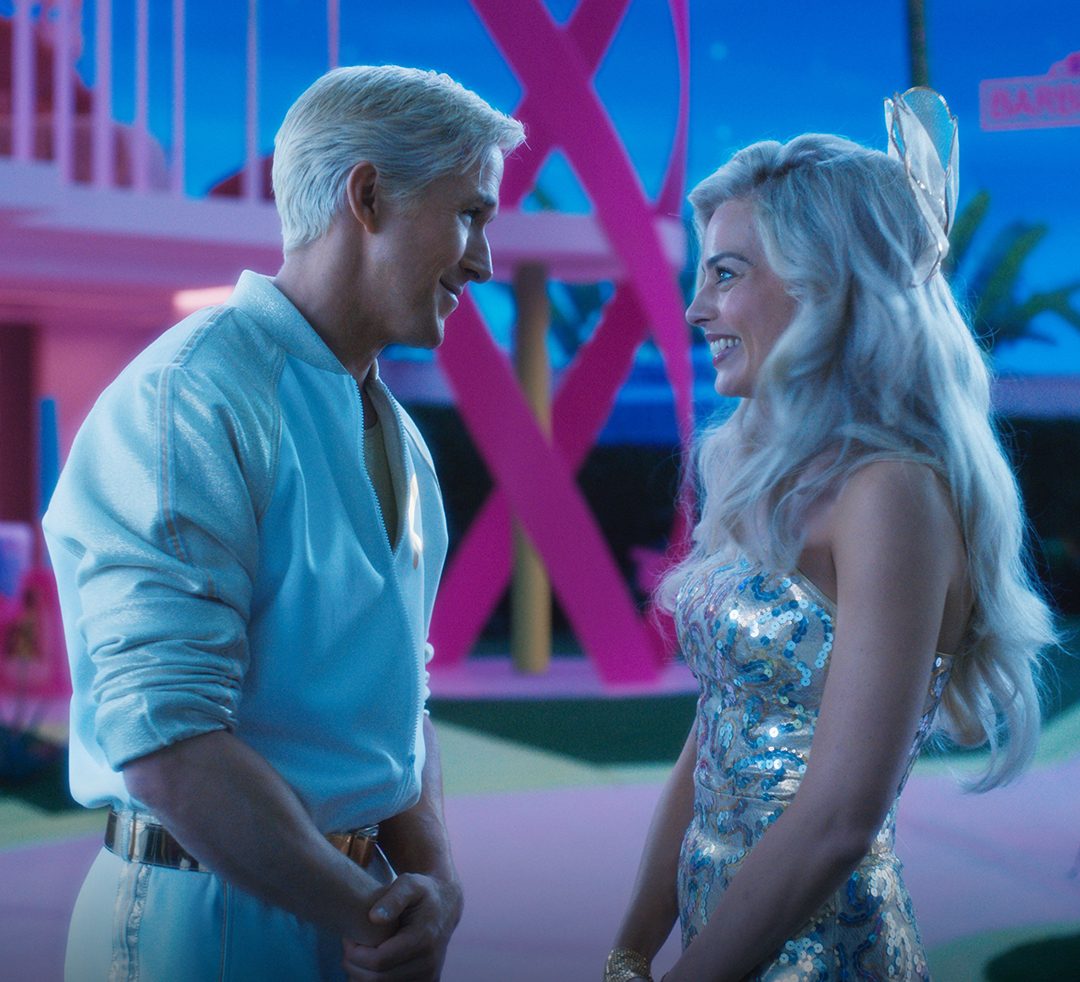
Digital Editor Halima Ahad applies a feminist lens to Greta Gerwig’s Barbie – a film equal parts compelling and contradictory
Barbie (2023) is an iconic movie for all ages, but one thing which has stood out to me since its debut is the feminist message of the movie. The main line, when the film was advertised during the Barbenheimer era, was ‘She’s everything. He’s just Ken.’ The feminism of Barbie questions how the patriarchy has led women today to feel the way they truly do about themselves as well as their gender as a whole.
At the beginning of Barbie, feminism is seen as the driving force of the Barbies’ ways of life and their daily routines in Barbieland. Barbie, with her varying career choices, has saved young and old women across the globe but at what cost? These aspects of Barbie may be seen as a gesture towards changing ideas about women in society but when the world of stereotypical Barbie (Margot Robbie) world turns upside down, they may be for the worse.
“The feminism of Barbie questions how the patriarchy has led women today to feel the way they truly do about themselves
There were attempts to diversify Barbie as a figure for all women throughout the movie, such as the appearance of plus sized or ethnic minority Barbies; however, the majority of them lacked substance to match their style in my opinion. Rather than putting their individual talents to good use, they were simply used to drive the plot of the movie forward.
When adulthood comes knocking on Barbie’s door, in the form of unrealistic body images and negative thoughts, feminism is seen as the countermeasure to all of this. As Barbie ventures into reality with Ken (Ryan Gosling) by her side, she finds out that it’s not all that she imagined. One example of this is when she comes face to face with sceptics in the real world, who negatively respond to Barbie’s ‘call’, insulting Barbie about what she has brought to society since her invention.

At the centre of all of this is Mattel. Will Ferrell features as the CEO of the large money-making company and the nominal antagonist of the movie. Rather than fuelling the idealistic notions of Ken’s emerging patriarchy, however, he ends up advocating for Barbie’s rightful place in the world for little girls.
In my opinion, his character is completely contradictory to the whole plot of Barbie. It is hard not to question why the CEO of Mattel does not stand up for Ken’s rights and way of life, as a man himself. Rather, he uses the Barbies and Barbieland to his own economic advantage in order to fuel women’s thoughts and ideas about the patriarchy.
“It is hard not to question why the CEO of Mattel does not stand up for Ken’s rights and way of life, as a man himself
When thinking back to Barbie, one thing which has stood out to me as a testament to the movie as a whole, was Gloria’s (America Ferrera) monologue to Barbie. In this scene, Gloria feels her world crashing down all at once when she feels powerless to save the brainwashed Barbies from the newly emerging Kendom. At the end of the monologue, she recites ‘and if all of that is also true for a doll just representing women, then I don’t even know’ which relates back to the doll’s main slogan, ‘You can be anything.’
Ferrera is a pinnacle for Barbie, propelling the ending of the film to an understanding of more realistic ideals about men and women. With the demise of the Kendom and the return of Barbieland, stereotypical Barbie’s life gradually comes back on track. However, Robbie’s Barbie doesn’t want that for herself after all. When the creator of Barbie, Ruth (Rhea Perlman), finally comes onto the scene, the notion of Barbie’s inner thoughts are revealed and she is finally able to take control of the narrative once and for all.
Overall, Barbie has been equally beneficial and detrimental to the feminist cause. Although it has been generally received as a positive for the feminist movement, some may say that it has driven women further away from their womanhood and closer to patriarchal ideals.
Enjoyed reading this feature? Check out these other excellent features from Redbrick Film:
In Defence of: Hollywood | Redbrick Film
The Death of Originality in Cinema and the Surplus of Sequels | Redbrick Film

Comments